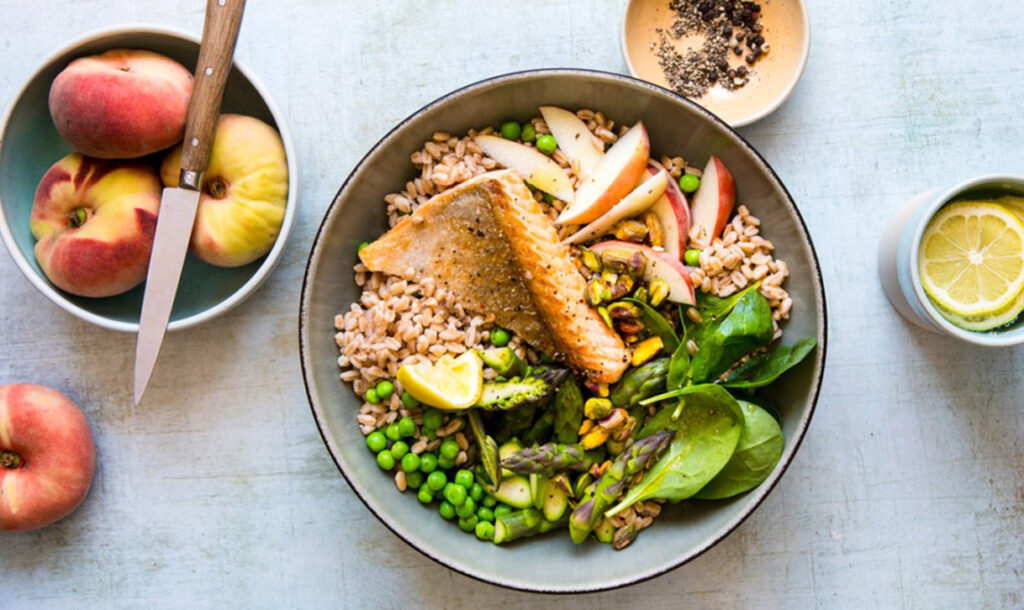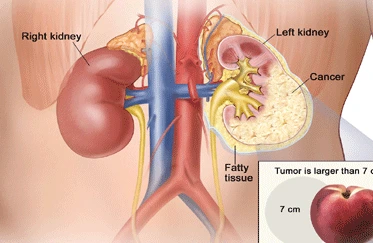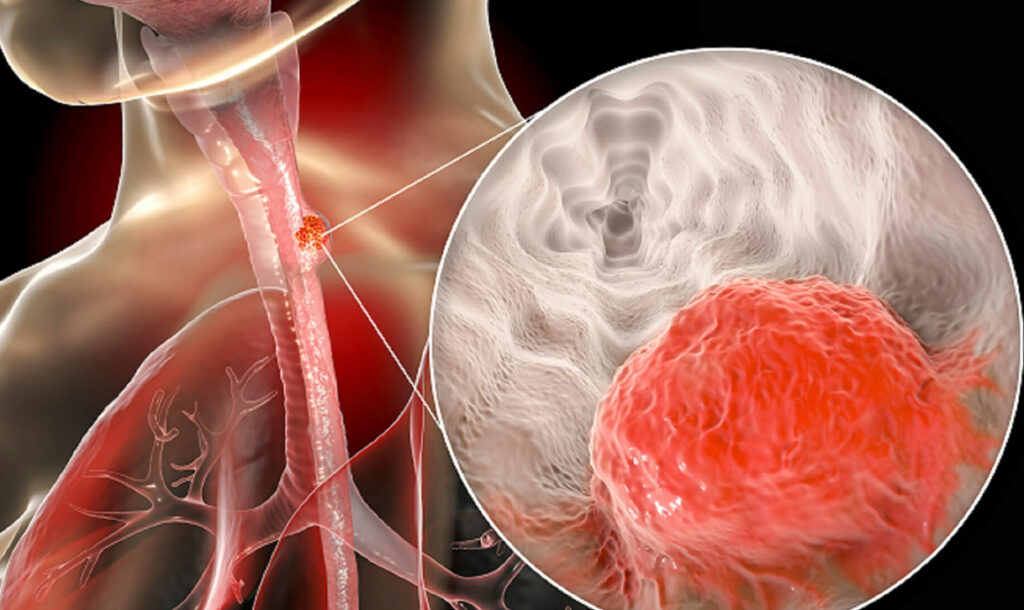Stomach cancer mainly starts in the mucus-releasing cells that line the stomach. This type of cancer is known as adenocarcinoma.
A nutritious diet during Cancer treatment includes a lot of fresh fruits and vegetables, whole grains and protein, and very few fatty, fried or sugary foods. While no foods are really off-limits during treatment (when you’re in nausea’s grip, whatever you can keep down is fair game, right?), some foods are better choices than others.
Purpose of Nutritional Care During Cancer Treatment
 |
To ensure, conserve or restore nutritional status |
 |
To minimize food related discomfort associated with cancer and/or its treatment |
 |
To improve strength, well-being and quality of life |
Sometimes, depending on how your body reacts to the treatment, the doctor may ask you to eat a clear liquid, soft or a regular diet. The chart below gives examples of foods included in these diets.
First Step – Clear liquids
 |
Gelatin |
 |
Sports drinks |
 |
Juices/ coconut water |
 |
Clear citrus juices |
 |
Fruit ices |
 |
Popsicles |
 |
Strained lemonade |
 |
Clear, carbonated drinks |
 |
Weak tea |
 |
Clear, fat free broth |
 |
Bouillon |
 |
Water |
 |
Strained vegetable broth |
Second Step – Easy to Digest foods
 |
Plain crackers |
 |
Instant hot cereal |
 |
Soft, angel food cake |
 |
All juices |
 |
Canned, peeled fruits and vegetables |
 |
Fish, skinless chicken |
 |
Strained blenderized, creamy soups |
 |
Milk, all types |
 |
White bread rolls |
 |
White rice, noodles, |
 |
Custard pudding |
 |
Plain milkshakes |
 |
Smooth icecream |
 |
Frozen yogurt |
Third Step – Regular diet
 |
All foods you eat regularly, except those that cause gas, constipation, diarrhea, etc. |
 |
Try to eat more frequent, but much smaller portions. |
 |
Eat when you are hungry, even if it is not your regular mealtime. |
These are foods that may work with you as you manage your treatments, whether it’s chemo, radiation or surgery.
Eggs
Eggs are a good source of B vitamins, plus contain 7 grams of protein each, the same amount in a serving ounce of beef, poultry, fish and cheese. And, new studies are indicating that eggs’ selenium value may help reduce the side effects from chemotherapy.
In a study published in Gynecologic Oncology, women undergoing treatment for ovarian cancer who were given selenium supplements were found to have high antioxidant activity in their blood and higher white blood cell counts (which helps fight infections). These women given selenium treatment also had less nausea, vomiting, abdominal pain, intestinal gas, mouth sores, hair loss, weakness, malaise and loss of appetite.
Egg yolks are also rich in vitamins D and E. In some studies, it was found that vitamin E, an antioxidant, may help to protect the body from the harsh toxins of cancer drugs. Toxins from chemotherapy decrease the body’s ability to fight infection. Vitamin E may also help mitigate peripheral neuropathy, a condition that causes numbness in the hands and feet and commonly occurs during chemo treatment.
Ginger
Ginger is well known as a home remedy for motion sickness and upset stomach relief, but clinical studies also show that ginger may have anti-inflammatory properties in addition to helping quell the nausea and vomitting side effects from chemotherapy.
A 2009 study funded by the National Cancer Institute showed that when taken orally and added to conventional anti-vomiting and anti-nausea medications, ginger supplements may help reduce nausea from chemotherapy treatments by up to 40 percent — with no additional side effects.
But before you up on the ginger ale, make sure it’s real ginger in that drink — not ginger flavoring.
Peppermint
Peppermint hard candies or peppermint tea not only taste good and relieve dry mouth, they also may help manage nausea. While the American Cancer Society (ACS) doesn’t report scientific evidence that peppermint is effective in taming the side effects of chemotherapy and radiation, there does seem to be evidence that theoil does help reduce spasms in the esophagus and intestines as well as nausea after surgery.
Controlling nausea and vomiting is important not only for preventing dehydration but also for keeping up an interest in eating — good nutrition during treatment and after surgery can help keep up energy levels, minimize weight loss and help fight infection.
Peppermint essential oils may also help reduce anxiety — another plus while living with cancer.
Beans and Legumes
Beans and other legumes such as peas and lentils are a good source of natural B vitamins while helping meet protein needs during cancer treatment. Diets high in protein encourage healing, cell repair and strengthen the immune system.
Vitamin B-complex supplements typically include thiamine, riboflavin, niacin, pantothenic acid, pyridoxine, biotin, folic acid and cobalamin. They help the body make energy, maintain healthy skin and keep the nervous, immune and digestive systems healthy. In addition, they play an important role in the production of red blood cells.
There are different schools of thought regarding B vitamins’ protection against cancers and how much you’d need to consume to get that benefit; some studies have indicated that a diet high in B vitamins can reduce women’s risk of breast and colorectal cancers.
Yogurt
Yogurt is rich in probiotics, the “good” bacteria similar to those normally living in your intestines. Probiotics have become popular because they are thought to help keep balance in your gut — everything from preventing vaginal yeast infections to restoring normal bowel functions (preventing diarrhea and constipation).
Many people use probiotic supplements while taking antibiotics, but cancer patients may also benefit from this friendly flora.
Probiotics have shown to be effective in preventing diarrhea and weight loss, or at least making those side effects less severe. In a 2007 study conducted by the Department of Medical Oncology at Royal Adelaide Hospital in Australia, probiotics successfully prevented these two side effects following treatment with Irinotecan, a form of chemotherapy used often with colon and rectal cancers.
In fact, many of the studies about probiotics and cancer focus specifically on colon cancer and how certain probiotics may have an effect on how enzymes in our bodies convert (or don’t convert) procarcinogens into cancerous cells.
Eat Your Vegetables
Dark green, leafy vegetables such as spinach, kale, Romaine lettuce and collard greens are a good source of vitamins A, E, K as well as the mineral iron. Iron is important to our red blood cells, which are responsible for making hemoglobin to carry oxygen to tissues throughout our bodies. Incorporate these leafy greens into your diet by steaming, or adding them to soups.
Not only are these greens good for you during cancer treatment, they also contain cancer-fighting nutrients such as beta-carotene, lutein, folate and phytochemicals that may also help prevent certain cancers, including breast, cervical and lung, from growing.
But greens aren’t the only vegetables you’ll want tostock up on. According to the American Institute for Cancer Research cruciferous vegetables such as broccoli and cauliflower have shown the ability to stop cancer cells from growing, specifically in breast, endometrium, lung, color, liver and cervical cancers.
Milkshakes and Smoothies
O.K., a fat and sugar-laden milkshake a day is not recommended nutrition for cancer patients – no one’s advocating fast food diet — but adding dairy to your nutritional regime during treatment is a good way to get protein, which is essential for helping the body repair its cells and to make new ones.
And it’s not just the proteins that dairy provides that are beneficial during cancer treatment. Dairy also is a good source of Calcium and Vitamin D, both important for skeletal health. Bone loss often occurs following chemotherapy treatment, especiallt in Breast Cancer patients who have ovarian failure with treatment, usually within 6 to 12 months. Loss of bone strength puts patients at risk for developing osteoporosis.
What kind of foods should I eat to maintain my health and build immunity –
There is no single super food that contains all nutrients. It is a good idea to eat a variety of foods to ensure you get adequate nutrition. Every day include foods from all the food groups:
 |
Grains: Include whole grains every day in your diet. Grains provide you with carbohydrates, soluble fiber and B vitamins. Carbohydrates give you the energy to carry on the daily tasks of living. |
 |
Meats/pulses: These foods will help you build and repair body tissue and also help you to fight infections. Lentils, legumes, eggs, poultry and fish give you protein. They also provide the body with energy and a variety of minerals and vitamins. |
 |
Fruits and Vegetables: Raw , cooked or as juices fruits and vegetables provide your body with vitamins, minerals and phytochemicals that your body needs. |
 |
Dairy: Milk, yogurt and cheese give your body proteins and carbohydrates. They are also the best sources of calcium in your diet. |
Important:
You may be asked to eat high calorie and high protein foods like meats, puddings and milk shakes by your doctor/ dietician. The single most important thing for you to do is to EAT. There may be days when your appetite is poor and many foods do not appeal to you. Try experimenting- change the form of the food e.g. if fruits are difficult to eat, puree them and add to yogurt; if the taste of milk is unappetizing, try eating cheese or add milk to soups to disguise the taste. You may have to cut back on intake of raw vegetables and whole grains if you have diarrhea. Include cooked, bland and soft vegetables or even add simple carbohydrates like rice and white flour (maida) to the cooked food during this time. In case you are unable to tolerate many foods, ask your oncologist about food supplements (such as Ensure or Resource) to meet the need for vitamins and minerals.
Ease Side Effects With FoodCertain foods can help ease the common discomforts from cancer treatment.
- Conquer constipation by drinking water and eating high-fiber foods like beans, lentils, vegetables, and fresh or dried fruit.
- Drive away diarrhoea with bland foods such as rice, bananas, and apples. Drink water to stay hydrated.
- Protect mouth sores and avoid dry mouth by grinding or pureeing foods to make them easier to swallow. Or eat foods that are already soft and mostly liquid, like soups and milk or yogurt shakes.
- Nix nausea by choosing bland foods and foods without strong odors. Steer clear of greasy foods. Go easy on your stomach by eating small meals throughout the day. Drink plenty of water even if you are vomiting.
Use the chart below to help you choose a good variety of items from the different food groups
| Food Group | Suggested Daily Servings | Example of a serving |
| Grains: Whole grain Breads/ Cereals/ Rice/ Chapattis | 6-11 servings from this group. | 1 slice of bread Or 1 chapatti Or 1/2 cup cooked rice/ pasta Or 1 idli/dosa Or 1/2 cup cooked cereal Or 1/4 cup muesli Or 1/2 – 3/4 of other ready-to-eat cereals |
| Meat/ legumes/ Pulses | 3 servings | 1/2 cup cooked dal (thick) Or 1 Cup cooked dal (thin) Or 3/4 cup cooked lentil Or 1 oz of cooked meat/poultry/fish Or 1 hen egg Or 1 tbsp peanut butter Or 1/4 cup cottage cheese Or 1 oz of other cheese (Mozzarella/Cheddar/feta/Swiss) |
| Fruits and Vegetables | 5-9 servings | 1/2 cup 100% fruit/vegetable juice Or 1 medium fruit (Apple/Pear/Guava/yellow banana/Orange/sweet lime) Or 1 Cup cubed fruit (Papaya/musk melon/watermelon) Or 1/2 Pomegranate arils Or 1/4 Cup dried fruit Or 1/2 Cup canned fruit Or 1 Cup raw vegetables Or 1/2 cup cooked vegetable |
| Milk/ Yogurt/ Cheese | 2-3 servings | 1 Cup (240 ml) milk Or 2/3 cup yogurt Or 1 glass (250 ml) thin buttermilk |
| Fats/ Oils/ Sweets | Use sparingly. Use to increase calories in the diet. Use oils that are liquid at room temperature since they are a source of good fats. Beware sugars will give calories but very little else- it is better to use in small quantities only to improve taste. | 1 tspoil/butter/ghee Or 1 tbsp mayonnaise/salad dressing Or 6 Almonds Or 2 tbsp sour cream/cream cheese Or 2 tbsp avocado 1 tbsp sugar/jaggery/honey/ jam/jelly/pancake syrup/maple syrup Or 1 cookie |




